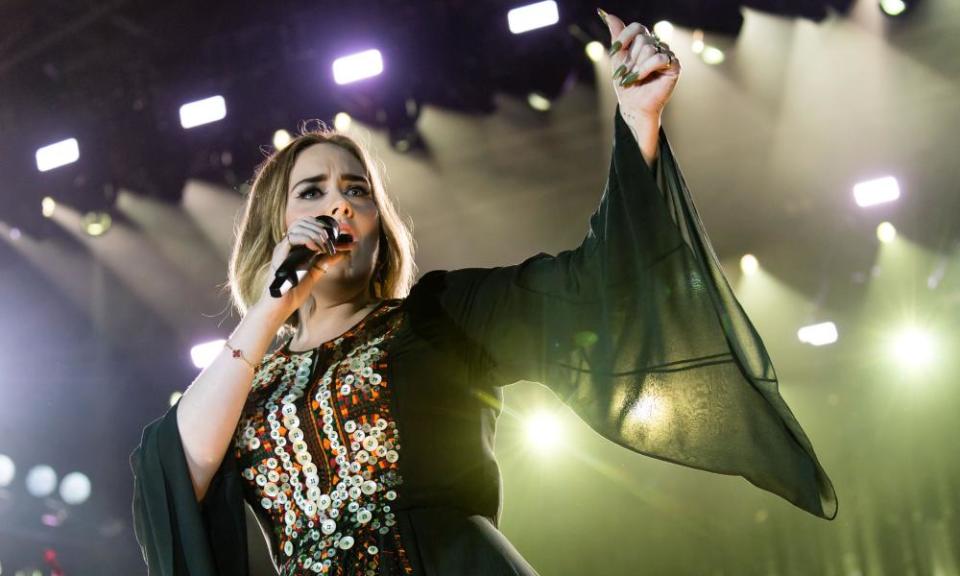Ticket resale sites could face legal curbs as part of push to beat touts

Websites that let touts resell tickets could be prosecuted unless they have permission from event organisers, under proposals aimed at curbing the secondary ticketing market.
Members of the House of Lords have put forward amendments to the digital economy bill that campaigners say would outlaw much of the controversial ticket resale industry, dominated by Viagogo, StubHub, Seatwave and GetMeIn.
Among them is a rule that would stop anyone reselling a ticket unless they have been authorised in writing to do so by the event organiser. The measure would deal a major blow to touts who harvest tickets in bulk to resell at vast markups, often despite opposition from artists. The sites also take a cut of the profits from a sale.
The offence would carry a maximum fine of £5,000 and this could wipe out the potential profit on resale of a ticket if it is rigidly enforced.
Singers Adele and Ed Sheeran and the producers of hit musical Hamilton have taken steps to prevent their tickets being resold at inflated prices but have seen touts circumvent their efforts with relative ease.
Proposed amendments to the digital economy bill also include other measures aimed at some of the more controversial methods employed by ticket touts.
They include prison terms of up to a year for the use of bot software to harvest tickets – a measure proposed by Conservative MP Nigel Adams – and a provision allowing promoters to take legal action against touts.
This would allow for court action to remove tickets advertised for sale if the seller does not provide sufficient information about the ticket, while touts could also be forced to hand over any profit. Another amendment would see internet service providers fined if they do not withdraw internet access from touts who breach consumer laws.
Touts would also face more stringent requirements to publish their name and company details, under proposals to strengthen the Consumer Rights Act. The Competition and Markets Authority is already looking into whether touts are complying with existing provisions of the act, such as the requirement to publish the seat location and its face value.
The proposals, to be debated in the House of Lords this week, follow a string of revelations about the grip on tickets for in-demand events wielded by the UK’s most powerful touts.
The amendment banning unauthorised ticket resale was tabled by Liberal Democrat peers Lord Clement-Jones and Lord Foster of Bath and is likely to be refined as the bill goes through parliament.
Security consultant and ticketing expert Reg Walker said it could restore the power over ticket distribution to the music and sports industries.
“It will go a long way to curbing the activities of the secondary ticket market which prevents fans from buying tickets at face value, artificially inflates prices, and makes music and sporting events unaffordable to a whole strata of society,” Walker said.
“It will outlaw a large part of the secondary market that currently works to the detriment of consumers.”
But he warned that the law would have to cover overseas firms, given that Viagogo is registered in Switzerland and StubHub, owned by eBay, is registered in Luxembourg.
Labour MP Sharon Hodgson said: “There is far more the government can be doing to support genuine fans and stop touts, and I hope the government responds constructively when debating these amendments.”
A spokesperson for anti-tout campaign group FanFair Alliance said: “This is a broken market, and UK audiences are the ones paying the price,” adding that “the status quo has become untenable”.
The group said the music industry needed “a suite of measures to tackle this scourge above and beyond action to stop the misuse of bots to bulk buy and harvest tickets”.
But it warned of unintended consequences if firms were banned from unauthorised resale even at face value or below. Some ticket firms are understood to be concerned that Ticketmaster could corner the market for authorised resale, thanks to the power wielded by its parent company LiveNation, the world’s largest live entertainment firm.

 Yahoo Finance
Yahoo Finance 